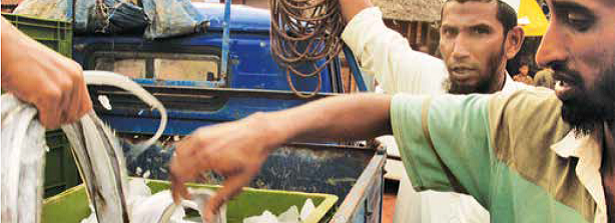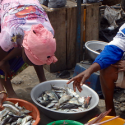Whose sea is it anyway

The article “Whose sea is it anyway” was published in the State of India’s Environment 2019 report by Dr. Joeri Scholtens (AISSR, UvA) and Prof. Amalendu Jyotishi (Amrita Vishwa Vidyapeetham, India). The article was published in the context of the Global Challenges Programme (GCP) project Fish4Food and describes how India’s fisheries are passing through a critical phase where the relation between production, livelihood and consumption reflects various trends of concern.
Oceans and fisheries are increasingly framed as a domain of looming problems, like pollution, climate change and overfishing, or booming opportunities for so-called “blue growth”. Both these framings tend to overshadow the fact that for hundreds of millions of poor people across the globe, fish and fisheries are foremost a source of livelihood and affordable nutritious food. The article “Whose sea is it anyway”, published in the State of India’s Environment 2019 by Dr. Joeri Scholtens (AISSR, UvA) and Prof. Amalendu Jyotishi (Amrita Vishwa Vidyapeetham, India) analyses how these vital contributions are increasingly at stake.
The article was developed in the context of the GCP Fish4Food project, a collaboration between Dutch, Indian and Ghanaian academics and practitioners, that aims to understand and improve low-price fish chains in West Africa and South Asia.
Please download the complete article “Whose sea is it anyway” here.






